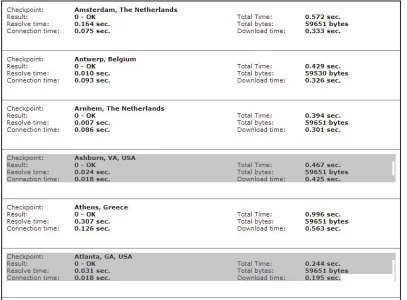NGINX is a completely different animal when it comes to php, etc. and as such should not be treated as a drop-in replacement for apache as a "free" performance boost. It is anything but "drop-in" and requires a lot of time and effort to get working more efficiently than apache.
Very well put/said, eventually people will understand that installing Nginx on their server is not a "set it and forget it" recipe or copy/paste from Internet. Sometimes I get mocked on these forums when I tell people to read the documentation, instead of posting spoon feeds. Thank you for highlighting what is the essence of Nginx.
Quick question: since my users are in Italy, and my server in the US, I need in some way to give a boost to the site connection.
I serve my site with OVH from Canada and I get decent times all over the world.
No Cloudflare or other gimmicks, few examples:
Checkpoint: Ashburn, VA, USA OK
Result: 0 - OK Total Time: 0.388 sec.
Resolve time: 0.000 sec. Total bytes: 27976 bytes
Connection time: 0.073 sec. Download time: 0.315 sec.
Checkpoint: Athens, Greece OK
Result: 0 - OK Total Time: 0.647 sec.
Resolve time: 0.014 sec. Total bytes: 28055 bytes
Connection time: 0.149 sec. Download time: 0.484 sec.
Checkpoint: Auckland, New Zealand OK
Result: 0 - OK Total Time: 0.882 sec.
Resolve time: 0.024 sec. Total bytes: 28053 bytes
Connection time: 0.205 sec. Download time: 0.653 sec.
Checkpoint: Beijing, China OK
Result: 0 - OK Total Time: 2.009 sec.
Resolve time: 0.002 sec. Total bytes: 27976 bytes
Connection time: 0.397 sec. Download time: 1.610 sec.
Checkpoint: Berlin, Germany OK
Result: 0 - OK Total Time: 0.447 sec.
Resolve time: 0.002 sec. Total bytes: 27976 bytes
Connection time: 0.107 sec. Download time: 0.338 sec.
http://www.uptrends.com/aspx/free-website-server-network-monitoring-tool.aspx
